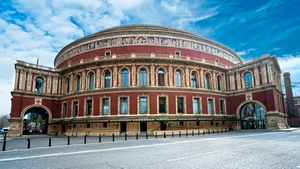A high court judge has declined to issue a summary judgment against the Royal Albert Hall over how frequently the London venue classifies its shows as ‘exclusives’, which stops the venue’s ‘seat owners’ from using their seats.
Because, you see, the charity that runs the Royal Albert Hall doesn’t actually own all the seats in the building and how it deals with the seats owned by third parties is set out in a bespoke act of Parliament. Basically, the Royal Albert Hall is a bit weird.
Arthur George, William Stockler and Alexander Stockler together own sixteen seats in the Royal Albert Hall. They argue that the venue’s management have not been following the rules as set out in the Royal Albert Hall Act 1966 when deciding how often to classify a show as an exclusive.
Which is true, they haven’t. But said management insist that their rule breaking has been endorsed by the venue’s seat owners for more than a decade via a regular vote at annual general meetings.
George and the Stocklers wanted the high court to issue a summary judgement declaring that the Royal Albert Hall’s current practices around classifying shows as exclusives are unlawful, as well as an injunction stopping those practices and some damages related to past conduct.
But judge Anthony Mann said that the venue’s primary argument that regular AGM votes had allowed the rule-breaking was sufficiently strong that the dispute would have to go to full trial.
Just over 1250 of the 5272 seats in the Royal Albert Hall are owned by third parties because of the way the original building of the venue was funded all the way back in the 1860s.
About 55% of the total costs of building the hall were paid for by individuals who, in return, were granted rights to seats for the next 999 years. Whenever there is a show in the hall the seat owners - officially called ‘members’ - can use those seats or sell access to them to other people.
However, some shows at the venue are excluded from that system - by being classified as ‘exclusives’ - because at least some promoters staging events there don’t want 1250 of the tickets out of their control.
Section fourteen of the Royal Albert Hall Act 1966 provides some slightly complicated rules about how often that can happen and for what purpose. It basically says that members can be excluded for up to 75 days a year, with the option to add another twelve “by resolution”.
Since at least 2008, the venue’s management have been excluding members on more days than are actually allowed by the act. That is justified by the argument that doing so brings in more money, which is in the interests of members, who - as well as owning seats - also have a role as a “financial backstop” should the venue run out of cash.
A formal memorandum approving that practice was voted on by members in 2012 and has been voted through at subsequent AGMs. Meanwhile, a new Royal Albert Hall Act is currently working its way through Parliament which will revise the law so that it is in sync with current practice. It’s hoped that act will be passed next spring.
George and the Stocklers didn’t formally oppose the venue’s current practice on exclusives until a vote in 2023. The legal action then followed. But the venue’s management argue that, because the seat owners didn’t formally oppose the memorandum setting out current practice until 2023, until that point they could assume implied consent, or at least an “acquiescence”, by the three members.
And while they voted against the practice in 2023, the memorandum sets out that any future change in practice will take three years to implement. That’s because the venue routinely books in shows up to three years in advance, and once it has been agreed with a promoter that a show is to be classified as an ‘exclusive’, the venue can’t renege on that commitment.
In his ruling yesterday, Mann says that he accepts that the venue’s management have “a real prospect of success in establishing an implied consent or at least an acquiescence defence” and that “any consent or acquiescence could not be withdrawn on the basis of an immediate withdrawal”.
He then concludes, “The history of the matter and its effect needs to be gone into with a degree of thoroughness which only a trial can provide, and a trial is necessary in order to determine the validity of this defence”.

